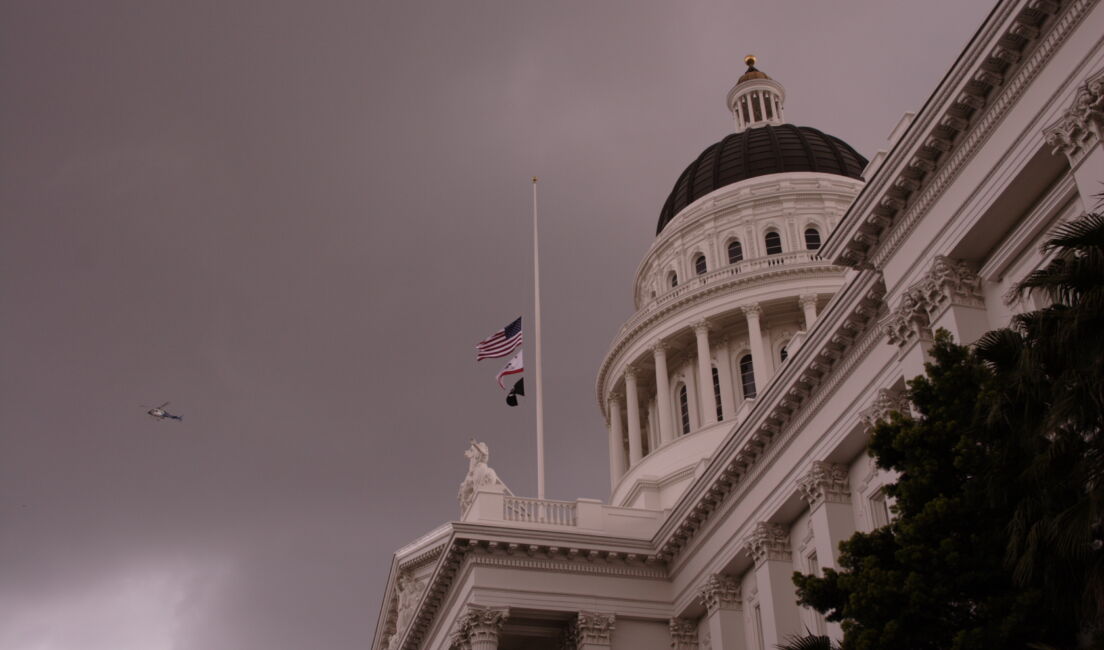Not ready to give up and 5 links to ideas you can use
What can I say?

Last spring, we ran a series of ads on Facebook asking people to subscribe to this newsletter. The copy on some of those ads highlighted the importance of “reviving civil discourse in America.” We believe that doing so will reduce the toxic polarization in our country.
As soon as those ads were posted, several people on both ends of the political spectrum replied, “The time for talking is over.”
Done talking
On Wednesday afternoon, I turned on the news and saw the images from the Capitol.
It didn’t matter that almost eight months had passed since we ran those ads. “The time for talking is over” comments were the very first things that came to mind as I saw those pictures. Watching people scale the walls of the Capitol, I thought, “Here are some people who are done talking.”
I have never doubted the anger and frustration that exist across the political spectrum in this country. I get out of bed and come to work every morning because I know how much of it exists.
I have always believed, with the same kind of conviction that I believe the sun is going to come up tomorrow, that each one of us has the power and the creativity to make the world around us better. Figuring out how to talk to and work with one another so that the world will be free, peaceful, and more prosperous is the most urgent challenge we have, and it’s why we started Civil Squared.
But this week, as I think about what I want to say to you—someone who must share these concerns and convictions, or you probably wouldn’t be reading this newsletter—I find myself at a loss.
Where do we go from here?
Many of the organizations and people I respect have publicly condemned the violence. I condemn it, too, but I still feel overwhelmed and scared. Others have pointed out that it is precisely because of the events of last Wednesday that we need to keep working to revive civil discourse. That’s true, too, but it hardly seems sufficient in the face of five lives that ended last week on Capitol Hill.
So, here’s what I will say, recognizing that it, too, is surely insufficient and maybe naïve: I’m not ready to give up on my conviction that we can do better. I’m worried that we don’t know how to do better anymore and that many of us are too tired and frustrated to keep trying. And this week, I’m also more afraid than I ever have been that we will fail to do better.
In a world that often seems out of control and when an endless parade of terrifying news threatens to overwhelm us, it’s tempting to throw in the towel. But every one of the conversations linked below helped me to remember that, even if I’m powerless to fix all the problems, I’m certainly not powerless to fix some of them, and there are a lot of great people in my community who have that same potential and desire. I’m not ready to face the alternative, and I hope you aren’t, either.
5 links to the full episodes of our favorite ideas for 2021
- Conservatism Then and Now, Civil Squared – We interviewed Stephanie Slade, the managing editor of Reason magazine about some of her recent writing on conservatism. During our discussion, Stephanie reminded us about the importance of strong civil society and community-driven solutions to our challenges.
- Education in a Pandemic, Civil Squared Podcast – Just before the fall semester started, we talked to Dr. Mike McShane, Director of National Research at EdChoice, to find out what schools, parents, and administrators had learned from the spring semester. Mike urged us to avoid top-down decision-making and to find ways to “turn down the dial” on our outrage in order to make our communities better places to live.
- Civil Discourse with College Students, Civil Squared Podcast – Professor Lindsay Hoffman of the University of Delaware’s Center for Political Communication told us about how she encourages her students to “diversify their news sources.” This is good advice for college students, but it’s also good advice for the rest of us!
- Broadening the Horizons of Innovation, Civil Squared Podcast – One of the things we learned from the pandemic is that there are a lot of outdated regulations at every level of government. Adam Thierer of the Mercatus Center made some recommendations for how we could use this lesson to improve opportunities for entrepreneurs who want to help solve society’s challenges in the future.
- Is Political Ignorance Bliss? Civil Squared Podcast – Politics may be the thing that occupies much of our cultural dialogue, but is it the thing that will have the most impact on the world around us? Professor Chris Freiman of William & Mary joined us to talk about his book, Why It’s Ok to Ignore Politics, and he had some recommendations about how to use our time and our resources most productively.
Photo by Patrick Egan on Adobe Stock